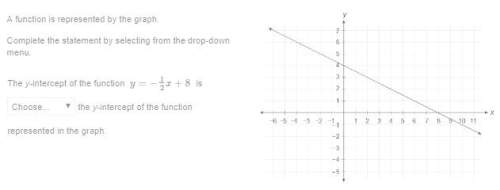
Mathematics, 20.09.2020 04:01 melidacampos12
Does the following infinite series converge or diverge? Explain your answer.
7 − 21 + 63 − 189 + . . .
It diverges; it does not have a sum.
It diverges; it has a sum.
It converges; it does not have a sum.
It converges; it has a sum.

Answers: 1


Other questions on the subject: Mathematics

Mathematics, 20.06.2019 18:04, marshalldayton1452
Which expression shows the result of applying the distributive property to 9(2+5m) 11 + 14m 18 + 45m 18 + 5m 2 + 45m
Answers: 1

Mathematics, 21.06.2019 16:00, baabyylewis
Select the correct answer. in the figure, angle k measures 45°. what is the measurement of angle c? a. 38° b. 45° c. 90° d. 98°
Answers: 2

Mathematics, 21.06.2019 17:00, BackUpAccount
Jose bought 20 shares of netflix at the close price of $117.98. in a few years, jose sells all of his shares at $128.34. how much money did jose make? a.) $192.50 b.) $207.20 c.) $212.50 d.) $224.60
Answers: 1

Mathematics, 21.06.2019 17:30, ooorozco
Assume that 1400 births are randomly selected and 1378 of the births are girls. use subjective judgment to describe the number of girls as significantly high, significantly low, or neither significantly low nor significantly high. choose the correct answer below. a. the number of girls is neither significantly low nor significantly high. b. the number of girls is significantly high. c. the number of girls is significantly low. d. it is impossible to make a judgment with the given information.
Answers: 1
You know the right answer?
Does the following infinite series converge or diverge? Explain your answer.
7 − 21 + 63 − 189 + ....
Questions in other subjects:

Biology, 04.02.2021 22:30


History, 04.02.2021 22:30





Mathematics, 04.02.2021 22:30

Mathematics, 04.02.2021 22:30

Mathematics, 04.02.2021 22:30




